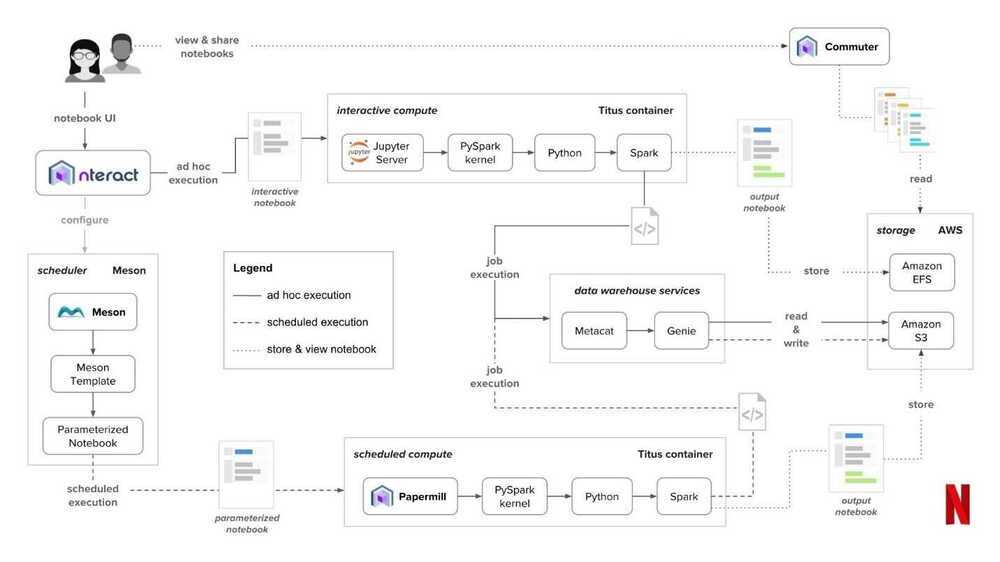Tools
nteract is a next-gen React-based UI for Jupyter notebooks. It provides a simple, intuitive interface and offers several improvements over the classic Jupyter UI, such as inline cell toolbars, drag and droppable cells, and a built-in data explorer.
Papermill is a library for parameterizing, executing, and analyzing Jupyter notebooks. With it, you can spawn multiple notebooks with different parameter sets and execute them concurrently. Papermill can also help collect and summarize metrics from a collection of notebooks.
Commuter is a lightweight, vertically-scalable service for viewing and sharing notebooks. It provides a Jupyter-compatible version of the contents API and makes it trivial to read notebooks stored locally or on Amazon S3. It also offers a directory explorer for finding and sharing notebooks.
Titus is a container management platform that provides scalable and reliable container execution and cloud-native integration with Amazon AWS. Titus was built internally at Netflix and is used in production to power Netflix streaming, recommendation, and content systems.

GitHub - ploomber/jupysql: Better SQL in Jupyter. 📊
Rshiny
Shiny is an R package that makes it easy to build interactive web apps straight from R. You can host standalone apps on a webpage or embed them in R Markdown documents or build dashboards. You can also extend your Shiny apps with CSS themes, htmlwidgets, and JavaScript actions
Polynote
Polynote is a different kind of notebook. It supportsmixing multiple languagesin one notebook, and sharing data between them seamlessly. It encouragesreproducible notebooks with its immutable data model.
https://towardsdatascience.com/polynote-the-new-jupyter-c7696a321b09
Good Colabs / Jupyter Notebooks
References
https://medium.com/netflix-techblog/notebook-innovation-591ee3221233
- Sheets to Colab
- Interactive Sheets